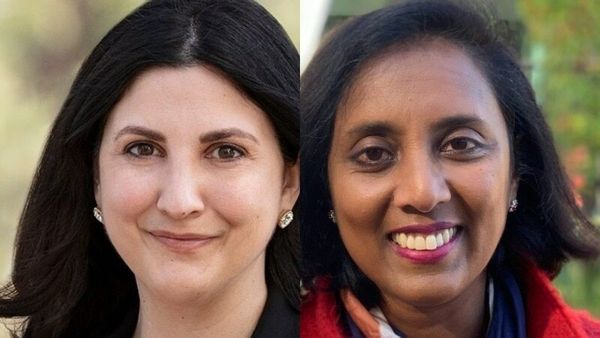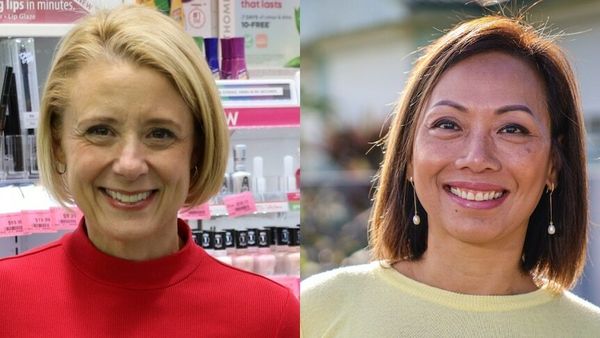Labor has paid a heavy price in the previously safe south-west seat of Fowler, where Kristina Keneally is set to be defeated by grassroots independent candidate Dai Le.
The former NSW Premier was considered a shoo-in when she was parachuted into Fowler after a factional brawl pushed her out of a winnable spot in the Senate.
But, come election night, things did not go according to the script.
The Labor frontbencher found herself trailing Ms Le, a former refugee who once ran as a Liberal.
The results showed a swing of close to 18 per cent against Labor, atomising the party's previously comfortable margin.
Kristina Keneally relocated from the wealthy enclave of Scotland Island on Sydney's Northern Beaches to the sprawling suburbs of south-west Sydney.
The American-born politician was criticised for having no connection to the community, where 16 per cent of residents have Vietnamese heritage.
Retiring Labor MP Chris Hayes had anointed local lawyer Tu Le as his successor, a party activist with strong local ties.
But he was overruled by Labor Party apparatchiks, who insisted on dropping in Ms Keneally — a move that angered many Labor voters in the electorate.
"What we are seeing across the board, again and again, is that people are sick of having their voting support taken for granted," ABC political journalist Annabel Crabb said.
The decision to overlook Tu Le reignited the debate about the lack of diversity in Australian politics.
"They saw a member of their community, Tu Le, being treated in a terrible way, very disrespectful, and this is a population responding by supporting a former Liberal candidate," Crabb said.
Appearing before her supporters on election night, Kristina Keneally said the result was "not entirely clear" and acknowledged the fight mounted by her grassroots opponents.
"I do want to congratulate Dai Le and [Liberal candidate] Courtney Nguyen on the campaigns that they ran," she said.
As the night continued, the ABC's election analyst said projections suggested Dai Le would win the seat once preferences were distributed.
With around 57 per cent of the vote counted, the Independent had around 34 per cent of the first preference vote.
Labor frontbencher Kristina Keneally's attempt to move into the lower house looks set to fail, delivering important lessons for the Labor Party about how it treats its voters in seats once considered safe.










